I was tempted to resist writing anything about the announcement of Ghost of Yōtei. It’s increasingly difficult to have a mature conversation about anything to do with video games without one pile-on or another happening, and I had more than enough of a pile-on from my review of Ghost of Tsushima to last me a lifetime.
But I’ve been very disappointed by the response that this game has had, and it’s from everyone. Even those who should be raising red flags about Ghost of Yōtei (i.e. the ones who claim to be left-leaning and love talking about diversity and progressive topics) have already decided to embrace the game. Why? Because the first game played well? Because this one certainly has “good graphics” based on the trailer? Because the protagonist is a woman and the actor behind her is an outspoken advocate for LGBT issues? It’s all these things, and just as a certain corner of the Internet has been reacting predictably poorly to the announcement (for the third reason there), the “left” has overwhelmingly decided that this is a progressive, do-good attitude take on Japanese feudal history.
Except, of course, if you think about this for more than ten seconds. Becasue if you got past the reactionary identity politics on either side, you would surely see some really big red flags. You would also notice that Sucker Punch and Sony have done absolutely nothing to suggest that they’re either aware of or care about the full historical and cultural context to where they’ve set this game.
Ghost of Yōtei takes place in 1603, and is set in Hokkaido. Except it wasn’t called Hokkaido then. It wasn’t even Japan. It was called Ezo. Hokkaido once belonged to a different ethnic community, the Ainu, and the Ainu have historically been subjected to some particularly harsh colonial efforts by the central Japanese government. In fact, the Ainu were only formally recognised as indigenous people from 2019 (yes, just five years ago), and even then the advocates for the Ainu find the official government line and efforts at recognition to be far, far less-than-acceptable.
Over the years the Japanese government has been so effective at forcing the Ainu to abandon their traditional culture and assimilate into the Japanese culture that there are scores of people, today, who are only just learning that they have ancestral roots within the Ainu culture. In short, the treatment of the Ainu people has been every bit as terrible as other colonised indigenous people, including the Australian First Nations people, Native Americans, Māori and so on. The only difference is that our respective nations are much further ahead than the Japanese government is, and that is not a compliment to us, because most of our governments and people are shockingly bad at reparations.
This continues to be an infuriatingly dark spot on the Japanese national record, made all the darker when you consider that Ainu are a rapidly disappearing people. Estimates are that there are fewer than 24,000 Ainu left (though there are no census figures because, again, Japan is shockingly bad at recognising the culture). Of those who do know that they are Ainu, only a percentage are knowledgeable enough to be engaged in preserving Ainu history and culture. It’s an indigenous culture that is at very real risk of disappearing within a few lifetimes, if not sooner.
That background should be far more important to self-proclaimed progressives than whether Sucker Punch picked the right American Japanese actor for the title role, or that it’s a female protagonist that we get to play as.
When you look through at what has been announced through this lens, things become very concerning, very quickly. To start, the developers do acknowledge that they’ve set the game during the era where Hokkaido was explicitly not part of Japan. As mentioned in the blog that announced the game:
“Our story is set in the lands surrounding Mount Yōtei, a towering peak in the heart of Ezo, an area of Japan known as Hokkaido in present day. In 1603, this area was outside the rule of Japan, and filled with sprawling grasslands, snowy tundras, and unexpected dangers.”
(To be entirely accurate there was a small Japanese presence in the very southernmost tip of Ezo at this time, which served as the go-between for Ainu trade and engagement. In reality it was colonial in the way it dealt with the Ainu but it was not, at this specific point in time, particularly expansionist, so the bulk of Ezo was left to the Ainu).
To be blunt in responding to this, Sucker Punch has used colonial language and it’s blatant enough that I honestly cannot believe that it actually got through the PR team at both the studio and Sony. Ezo was not an un-populated wilderness at this time, as the quote implies. It was the populated home of the Ainu. Read it again and tell me that this paragraph doesn’t have heavy shades of the same language that was used to justify the settling of Australia, when it was declared “Terra Nullius,” or “Land Belonging To Nobody.” Arbitrarily declaring that land is unsettled and therefore free for the taking, taming and settling is exactly how all the major European empires justified their colonialism of all the territories they took. This statement by Sucker Punch sounds like a cool setting for the Japanese equivalent of a western, but really just applies that same attitude of “Terra Nullius” to the lands of the Ainu people.
Somehow that’s even less concerning than the protagonist, though, who is Japanese and not Ainu. How do we know this? Because as we see in the trailer, the protagonist is an adult with no facial tattoos. One of the unique qualities of the Ainu culture is that women – and only women – were tattooed. The age with which women were tattooed varied from community to community, but back when this game is set, it would certainly have been at a young age, no older than 12, and that is much younger than the protagonist of the game.
So Sucker Punch either did so little research that they weren’t aware of the tattoos of the Ainu people before deciding to create an Ainu character (almost totally unlikely). Or, alternatively, they’ve made a game set in Ainu territory where you do not play as an Ainu protagonist, and do so at a time when tensions between the Japanese at the southern tip and the Ainu were really starting to flare up (the Ainu would undertake a major military action against the Japanese in the southern tip about 50 years after this game’s setting).
Now, if you think the Japanese were particularly respectful towards the Ainu at this point of time, consider that after defeating them in that 1669 rebellion, the Japanese invited the Ainu to a giant sake-drinking party and then assassinated the lot of them. Real Game of Thrones Red Wedding stuff, and if our protagonist is at a similar event in this game, they’re at the event on the side of the ones doing the slaughter.
So based on all of this there is one of three different ways the story can play out, assuming that it’s not some wildly experimental masterpiece that redefines how game narratives work (it won’t be. This is a AAA blockbuster):
- Sucker Punch just don’t touch Ainu culture at all, and the game doesn’t feature any of the people. In one respect this would actually be the best approach for Sucker Punch, because the Ainu are an almost impossibly difficult culture to learn about (on account of the records and understanding of the people being that limited even within mainstream Japan, let alone what’s we can access in English). By simply not including them Sucker Punch wouldn’t run the risk of representing them poorly. Of course, that means the total erasure of the Ainu people, and that’s terrible and irresponsible, but it’s still better than the other scenarios.
- The Ainu are the antagonists, and the protagonist is on some kind of mission of resistance/revenge. This would be appropriate to the franchise, because I’ve just described the plot of Ghost of Tsushima, this game’s predecessor. Of course, there’s a significant difference here: In Ghost of Tsushima the Japanese were resisting both genocide and colonialism, and this time around the Japanese would be the ones perpetuating it. Now far be it for me to suggest that you couldn’t potentially write a story about colonialism from the eyes of the colonists, but that is a minefield of a theme to navigate and you sure as hell can’t frame it as a nice, neat story of heroism. Given that AAA games haven’t managed to graduate “flawed hero” as the most subversive approach to the relationship between protagonist and audience, I can’t see Sucker Punch being the ones to totally redefine how games are written here.
- We get some scenario akin to The Last Samurai where our colonist protagonist ends up in the care of the Ainu and develops such empathy for them so ends up fighting for their liberation against their own people. This might seem like the most positive approach, but The Last Samurai is fiercely criticised for its Orientalism and themes of Western superiority, and just consider this – in this case, a Western studio would be creating a story about falling in love with “noble savages,” about a culture that they know nothing about, from the perspective of another culture that is not their own.
Sucker Punch make perfectly fine and competent video games, and then stick competent stories on top of them, but getting Ezo and the Ainu people right requires more than a competent writer. We’re talking about one of the most silenced and unknown indigenous cultures, and Sucker Punch isn’t even Japanese. Given that Ghost of Tsushima was less “historically and culturally accurate” as it was a “checklist of all the things that make Japan exotic from the perspective of Westerners,” and got an awful lot wrong in the process, there’s absolutely no reason to believe that this company has spent the years of close consultation with the Ainu people that it needed to if the goal was to accurately, authentically, and appropriately represent these people in a game.
What infuriates me most about this is that absolutely no one has asked Sucker Punch the hard questions that they absolutely should be asked about what they’ve done here. The story of Japanese colonisation of Hokkaido is a story for the Ainu people alone to tell, and that an American studio feels entitled to that story is so brazen that if the situation were reversed the meltdown in the media would nuke the Internet.
Seriously. Just imagine what would happen if a Japanese studio decided to tell the story of Pocahontas. And that their research was limited to the Disney film and some light Wikipedia reading. And that they got a naturalised native American born and bred in Japan to play the role. And the studio didn’t consult with Native Americans in making the game.
Because that, right there, is what Ghost of Yōtei has every potential – even odds-on favourite – to be. Sucker Punch may well put all my concerns here to rest and deliver something incredible that finally gives the Ainu people their story in the mainstream media. I’ll be more than happy to admit I’m wrong if that happens. However, until proven otherwise, rather than being breathlessly and uncritically excited for the game for superficial reasons, we should be asking hard questions of Sucker Punch here. It is nothing short of pathetic that none of this will be investigated properly in the leadup to or release of the game because all those oh-so-progressive types, who care so much about diversity and inclusion, show time and time again that they stop caring when it’s about people and stories that exist outside of the West.
Once again we see the overwhelming attitude that America can help itself to the stories of anyone else – even native Japanese people. Given how respected storytelling is to the identity native cultures (including the Ainu), this is tantamount to how the UK loved pillaging artefacts and treasures to host in museums in England. It seems that some inherent colonial attitudes haven’t quite gone away, even among the “woke.”

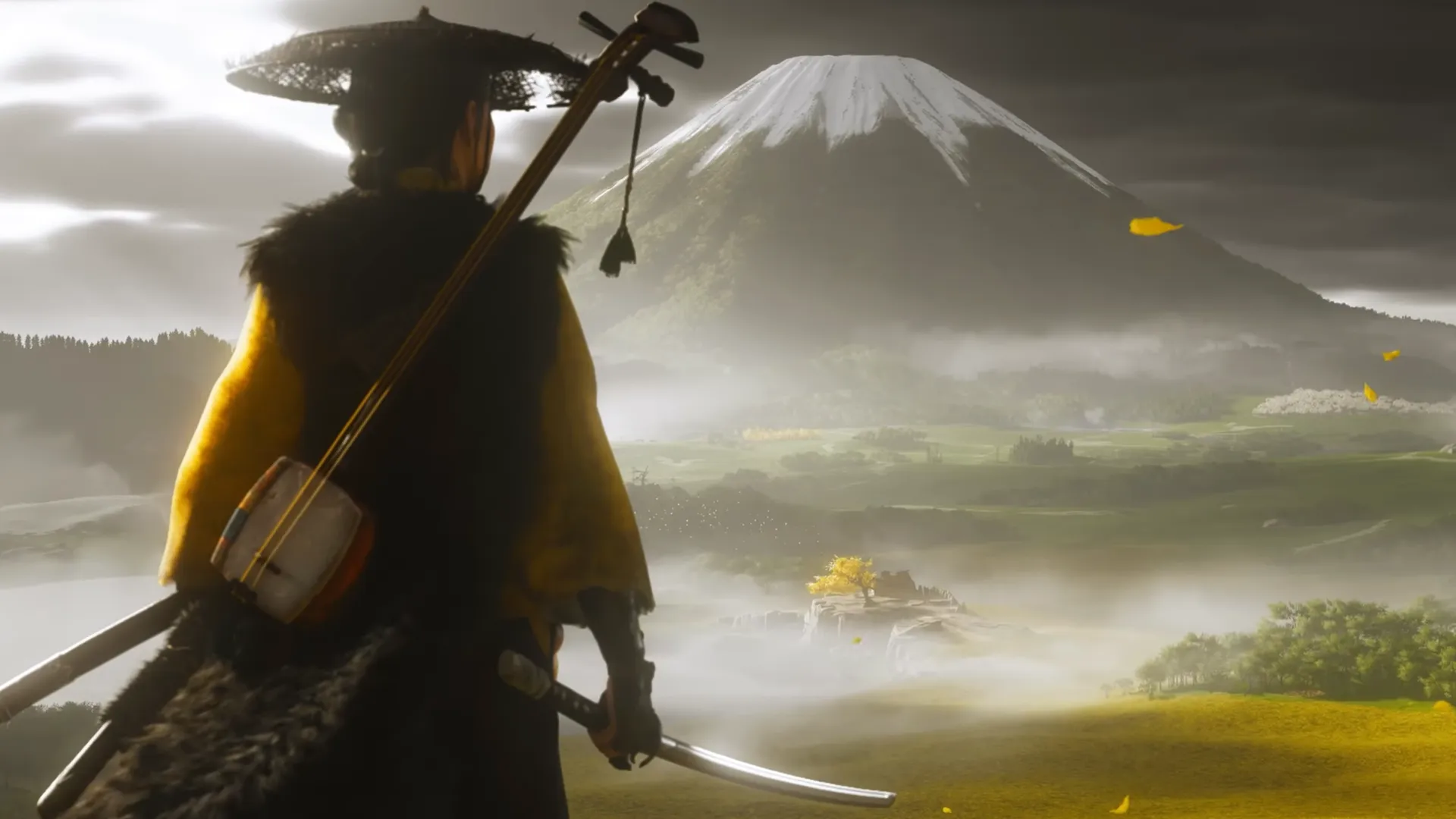
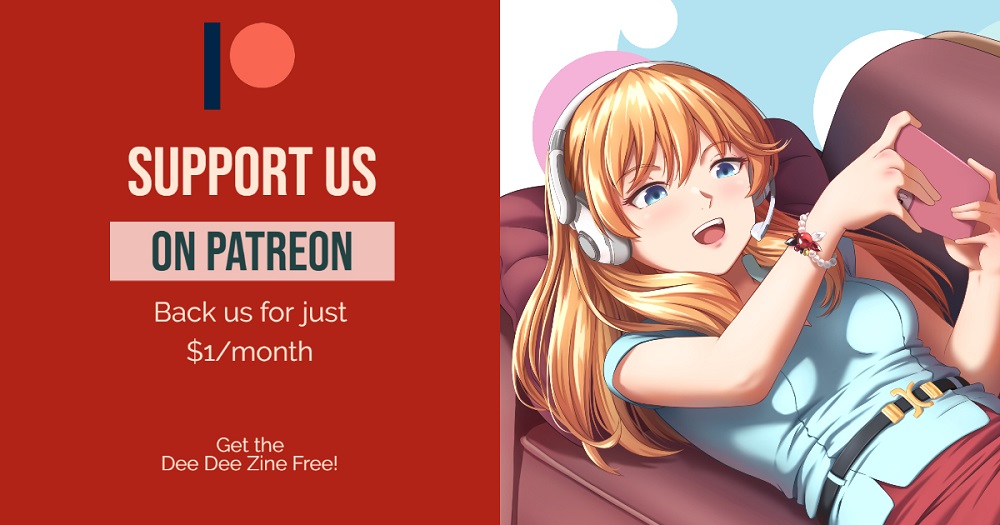
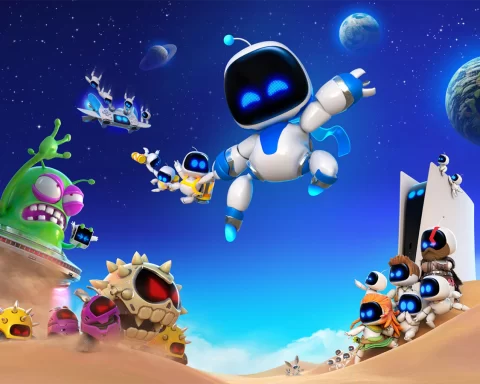



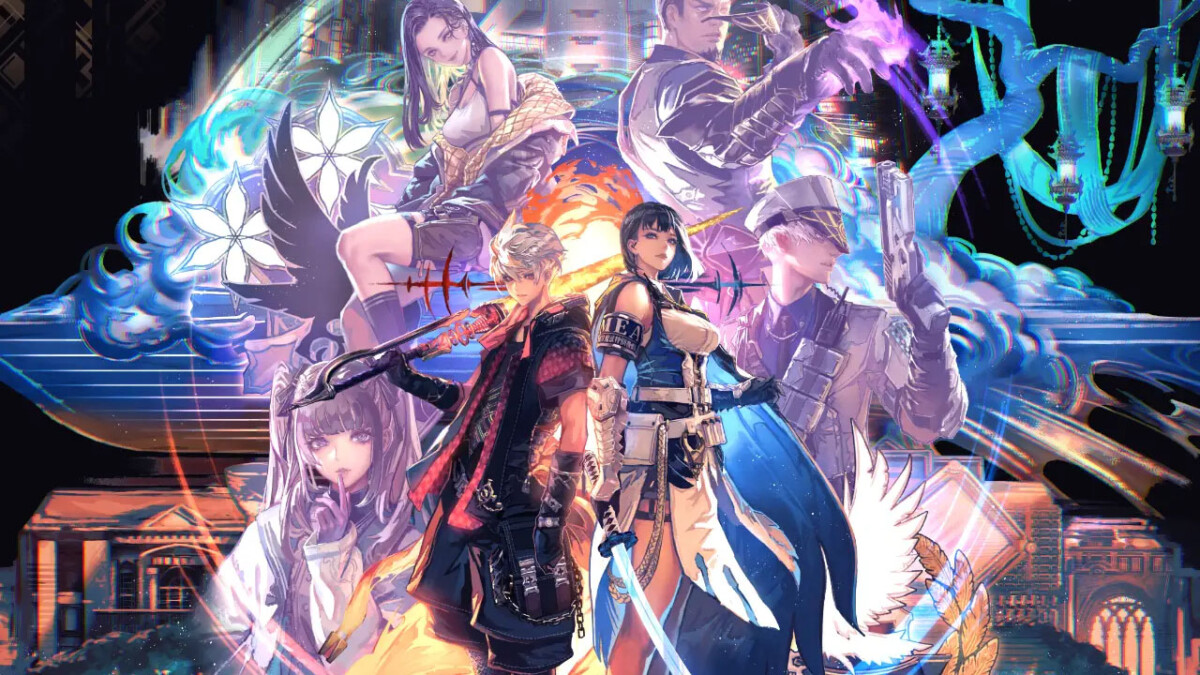
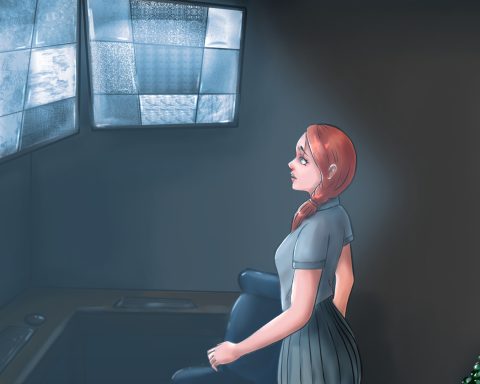
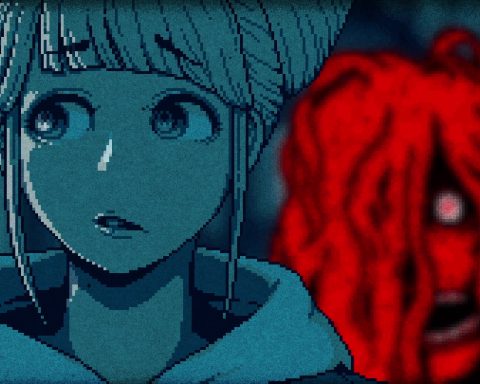



Hmm, interesting take on all of this. Who exactly knows if Sucker Punch will even treat this sensitive topic with respect?
And frankly, this kind of shallow exploration of Japan from a Western lens was precisely why Blue Eye Samurai on Netflix pissed me off so much more than it should despite all of the inexplicable, overwhelming *praise* it got from you guessed it, those oh-so-progressive types (because it stars a half-Japanese woman on a revenge quest to kill those white, racist colonists that in no way gave me flashbacks to Tsushima and worryingly what Yotei might try to pull) and those who only think of samurai cinema/anime from the likes of Kurosawa and bloody OVAs and films like Ninja Scroll alongside wanting more Western “anime” like Arcane. And of course, it gets so much wrong as well about the time period and samurai films, despite being embraced for being “progressive” and having the writer’s half-Japanese wife as a co-creator. Utterly embarrassing.
If Japan can make games set in America and make it full of American stereotypes (see: Dead Rising) then I think it’s fair game for America to make one about Japan.
Well there’s a vast power difference between an imperialist state and a nation that’s beholden to it.
But put that aside, because that’s not even relevant. This entire article is pointing out that this game is *not* about Japan but rather the Ainu. And the fact that the West is largely ignorant of the difference is precisely why Western people should not be making games about it.